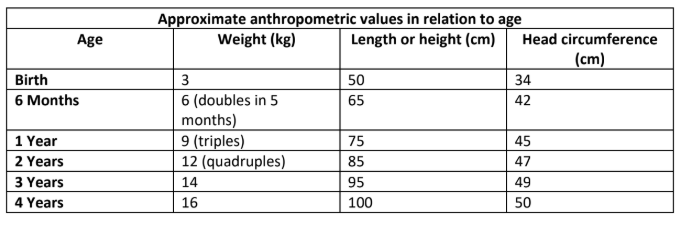-
Tall order: More to good growth in toddlers than just measurements
10.06.2019‘Oh what a tall boy, what do you feed him’; ‘Your girl is too thin, doesn’t she eat properly?’
As parents, you probably have heard these type of frequently asked questions – at family gatherings, at school, or on the playground. Casual as they may sound, they point to very serious aspects of growth among toddlers – height and weight of children, the role of nutrition, and what is the mother, especially, doing about it.
Chennai based Pediatric Gastroenterologist, Dr. Bhasker Raju says, “Growth is dynamic process from birth to puberty and beyond. It needs to be closely monitored by both parents and pediatrician. While many deficiencies have obvious signs which the pediatrician can easily pick up, some deficiencies such as protein inadequacy do not have any identifiable signs except slow growth. That is why, close monitoring of height, weight and other growth parameters become very vital. Internationally standardized growth charts are available, which the pediatricians (even parents can) use to monitor growth.”WHO Growth Chart
Your guide to ‘right growth’
Right growth is the combination of good nutrition and physical activity resulting in holistic development across all growth markers including physical, cognitive, social and emotional that are fundamental to a healthy childhood.Nutrition plays a key role in a child’s growth. As children grow, they take time to develop a taste and liking for different types of foods. Parents are advised to look at nutrition more carefully in toddler years and ensure child’s diet is representative of the five food groups – vegetables, fruits, protein, dairy and cereals – that provide all the micro and macro nutrients that are required for wholesome growth during the formative years.
While macro-nutrients are proteins, carbohydrates and fats that make up bulk of our diet and provide energy for daily activities, micro-nutrients are vitamins and minerals which are essential for utilization of macronutrients to maintain body functions.
“Studies have confirmed that many normal appearing, but thin or short children do have potential to grow faster, but aren’t, because of inadequate nutrition. Such children benefit enormously with at least one supplement of energy and protein dense supplement balanced with adequate micronutrients, in addition to their normal daily intake. Such children do show a spurt in weight and crucially height as well, reassuring us that their BMI stays same without risk of obesity. Similarly, height and weight benefits have been observed with picky and fussy eaters too, with just one supplement a day” Dr. Bhasker Raju adds.
Play time is as important as meal time for toddlers. Encourage children to play outdoors – Vitamin D, often called the Sunshine vitamin, is important for bone health and even supporting immune function.
Mothers’ choices
When looking at nutrition, mothers should observe the child’s behaviour and nutritional choices. Does the child have any preference to a select group of foods and avoiding certain foods? Is the child eating more when sitting at the dining table with other family members or by himself? Selective eaters are at risk for growth faltering – it’s advised that parents check the strengths of all the nutritive elements like proteins, vitamins, minerals and fibre on the label and percent daily requirement fulfilled by each serving of the health drink.While parents are conscious about the ill effects of junk food that has high sugar and high salt, a little extra effort to ensure that your toddler gets a balanced diet, starting with a good breakfast, a wellbalanced lunch, and eating at least as a family together, can go a long way. The way to ‘right growth’ is through right nutrition and right lifestyle choices for toddlers made by parents.
Move from how much to the right kind of growth
Dr Irfan A Shaikh, Head – Scientific & Medical Affairs, Abbott’s nutrition business in India says, “The growth of a child is influenced by genetics, nutritional and environmental factors, which differs from child to child. However, excessive intake of imbalanced diet, high in fat, salt and sugar leading to imbalanced macronutrient intake and deficiency of micronutrients like iron, vitamin A, vitamin D, vitamin B12, etc. are rather common these days. Mothers should be alert to habits like selective eating, imbalanced diet, sugary foods, excess weight gain, little or no outdoor play activity and high screen time, which can be inhibitors to appropriate growth.”As parents are getting more nutritionally engaged and making conscious choices for their children, a visit to a pediatrician to understand child’s growth trend is strongly recommended.Don’t forget to enjoy your child’s growth journey
Much awareness has been created among mothers to reiterate that being lean does not necessarily mean malnourished and being overweight may well be an early sign of an unhealthy lifestyle, but parents should feel empowered to make informed nutritional decisions in the face of continuing traditional myths when it comes to nurturing their child. The key is to find the right partners in the growth journey – paediatricians, nutritionists and even child psychologists who offer informed perspectives and counsel.As parents of toddlers, most likely you will still continue to bat questions, comments and advice on growth, but don’t forget to enjoy each milestone in your child’s growth – if your little one is able to reach the latch of a door that he couldn’t reach few months ago or is offering help to pick your shopping bags – those too are signs too of growing up.
Source: https://timesofindia.indiatimes.com/life-style/parenting/toddler-year-and-beyond/tall-order-more-to-good-growth-in-toddlers-than-just-measurements/articleshow/69675140.cms
Latest Blog Post
- Sugary Drinks Linked to a Higher Cancer Risk
- The Latest Research on Protein and Muscle-Building
- 27 Health and Nutrition Tips That Are Actually Evidence-Based
- Tall order: More to good growth in toddlers than just measurements
- Millions of cardiovascular deaths attributed to not eating enough fruits and vegetables


